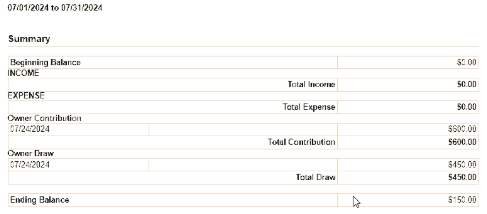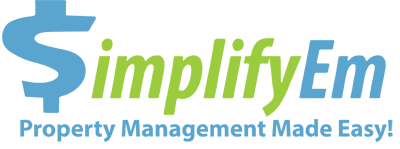Once you start a property management company, the day-to-day running of the business can overwhelm you. If you are not organized and process-oriented you’ll spend all day fighting emergencies and not be able to grow your business.
Understanding the Basics of Property Management
It’s important to know what property management companies do and how to make it an efficient process. There is typically a monthly rhythm to the business with specific activities at different times of the month:
- Rent Collection
- Dealing with late tenant payments
- Sending out owner payments and reports
- While maintenance and repairs can happen throughout the month, you can deal with vendor payment at a specific time of the month.
Finding new tenants for vacant units and gaining new owner clients are important revenue-generating activities that happen throughout the month and have to be prioritized.
By thinking about your business in this manner, you can potentially create an organization with specialized roles to scale your business.
It’s important to master key business processes to run and grow your property management company:
- Monthly tenant rent collection and communication process
- Monthly owner communication and payment process
- Property maintenance tasks to minimize repair
- Monthly financial accounting
- Filling vacant units with great tenants in minimal time
- Finding property management owner clients to grow your business
- Build a variety of revenue streams beyond property management fees.
Running your property management company efficiently:
According to NARPM survey data (National Association of Residential Property Managers), the most successful property managers (those in the top quadrant of profit margin), have most of their growth come from more profit per unit versus growing the number of units (doors) under management.

Two Key Measurements to Ensure maximum profit margins
So how do you get into the top quadrant of profit margin? Well, two key indicators are your efficiency in labor and your efficiency in leasing:
- How much staff (labor cost) do you need to manage doors under management?
- What is your leasing cost to fill a vacant unit?
The top quadrant of property managers has a labor cost of 30.2% compared to the industry average where labor cost 43.7%. This also translates into more doors under management with smaller teams. You can see the difference with top-performing firms.

Another key metric to consider is how much it costs the property manager in terms of leasing wages and leasing commission compared to leasing fee earned. You can see from the table below there is a huge performance difference of a top performing company.

In order to become a top quadrant property manager in terms of profitability, it’s important to keep your tenant happy so they stay for a long time. You should also make sure your owners are happy with your service so you can charge a premium property management fee and they see the value.
Running a Property Management Company – Key Processes
You have to pay attention to and optimize the following key processes:
- Monthly tenant rent collection and communication process
- Monthly owner communication and payment process
- Property maintenance tasks to minimize repair costs
- Monthly financial accounting
- Filling vacant units with great tenants quickly
Monthly Rent Collection Best Practices
Monthly rent collection is one of the most important regular activities for your business. It should run a regular process with key steps:
- One of the most important regular activities is collecting rent from your tenants. It’s important to make it convenient for your tenant to pay rent in a variety of ways. Giving your tenants the ability to pay rent online via ACH or credit card is important.
- Automate Rent Payments: Provide tenants the option to set up automatic payments to avoid missed deadlines.
- Communicate status of payment to tenant: Use Late Rent Notices and Rent Receipts.Beyond making it easy, it’s important that your tenant realizes you will enforce the lease and timely payments are expected. If they’ve paid, sent them a rent receipt to give them positive feedback. If they haven’t paid on time then having an attorney-approved and a Late Rent Notice that is automatically sent out via Email and SMS is also critical.
- Track payments accurately: Maintain detailed records to identify late payments and follow up appropriately.
Typically the majority of your rent collection should happen in the first few days of the month based on lease terms you’ve signed with your tenants. It’s important you have good record keeping so you know which tenants are late and communicate to them appropriately, including potentially a late rent notice, followed by more stringent communication if needed by a certain day of the month (typically the 5th to 10th of the month). If you have not received rent.

Owner Communication and Payment Process
As a property manager, you are responsible for managing their properties. You should communicate how their properties are doing on a monthly basis and pay them their balance after all expenses (including your property management fees) have been deducted on a regular basis monthly. You should have a systematic monthly approach to this:
- Communicate to your owners with a professionally company-branded owner report that details how their property performed financially.
- Promptly disburse their funds. Transfer owner payments after rent clears in your bank to ensure accuracy.
- If there is or will be a vacant unit, give them a prompt action plan. This will help strengthen their trust in you.
- Set expectations with agreements on fees and payment schedule. Typically you want to send the owner report and owner payment after the rent has been collected and cleared in the bank (meaning the rent check didn’t bounce). Most property managers schedule this process between the 7th to 20th of the month. Set the expectation with your owners on the schedule.

Another key document to manage expectations is the property management agreement you sign initially with new owner clients. It sets expectations on fees you’ll be charging, when they should expect monthly owner payments, as well as your and their responsibilities.
Property Maintenance Tasks to Minimize Repair Costs
It’s important to have regular maintenance activities for your property so small maintenance issues don’t become major repairs.
- It’s good to have a regular schedule for different types of maintenance. For example:
- Monthly Maintenance Tasks – Inspect HVAC filters, test smoke alarms, check for leaks.
- Quarterly Maintenance Tasks – Inspect roofing, clean gutters, service heating systems.
- Annual Maintenance Tasks – Full property inspections, pest control treatments, review safety compliance.
- If you have a trusted vendor you work with for this such as gardeners, plumbers, or handymen it’s great to have them set up as vendors in your property management software.
- It’s important to have the ability to have a communication center so that you can reach your vendors for emergency repairs as needed via phone, email, SMS and directly
- Issue work orders through your software to your vendors Email and SMS, to streamline the process.
Monthly Financial Accounting Making Sure You’re Audit-Proof
Beyond taking care of recording activities with tenants, owners, and vendors, you need to make sure your bookkeeping is audit-proof. The best way to do that is to consistently do a 3-way reconciliation. It should be done at least monthly, although you can decide to do it daily or weekly.
This process ensures that your financial transactions are complete and up-to-date. It involves making sure your bank statement balance matches your financial book balance and also matches your client (owner) balance.
Having property management software that automates this reconciliation process is critical. This is one of the key elements your state’s auditor will ask of you if you’re ever selected for a financial audit.
Filling Your Vacant Units Fast with the Right Tenants Quickly
It’s critical that you know when a unit is going to be vacant. So that you can advertise the vacancy and get the unit ready for occupancy. You can get the right applicants for the vacancy and learn about their background. The faster you can fill the vacancy, the lower your leasing cost, and the more profitable your leasing fee income will be. You can learn more about this in our ultimate guide to finding the right tenant.
Strategies to Grow Your Property Management Company
Keeping your current owner clients happy is the key to having a profitable property management company. If you want to turbocharge growth, it’s important to focus on two additional key business processes:
- Finding property management owner clients to grow your business
- Build a variety of revenue streams beyond property management fees.
Acquiring New Property Owner Clients
Requires a variety of marketing and sale activities:
- Advertising campaign for new owner clients
- Call campaigns for new owner clients
- Advertising campaign for existing owner clients (for additional units or referrals)
- Call campaign for existing owner clients (for additional units or referrals)
It’s best to experiment with all and see what’s most effective. Here are costs to acquire additional units to manage. You want to try to get to the top quadrant:

What is critical is to know how much it costs you to acquire a unit and compare that to the lifetime value of that unit (how much revenue you will typically earn from a unit). The lifetime value of the unit is made up of your earnings from the unit, and typically, how long you manage a unit.
If your lifetime value of a unit is $10,000, you can afford to spend enough to get a new owner client so that it’s still profitable for you over the lifetime.
You can see the Unit Lifetime value for property management companies and assess where you fit:

Finally beyond the CAC and LTV for acquiring an Owner client, you have to understand why they choose to use a property manager and why they choose not to use a property management service and do it themselves.
According to Peter Lohman here are some factors:
Why owner clients choose to use a property manager:
- Making property management easier
- Boosting profitability
- Reducing legal risks
Reasons owner choose not to use or stop using a property manager:
- Decline in service quality
- Fee Increases
- Tenant placement delay
Building Multiple Revenue Streams Beyond Management Fees
This is the secret sauce to turbocharge your property management company’s revenue growth.
Property management companies charge PM fees; however the most successful companies provide many other services and provide additional value to their owner and tenant clients.
Notice the difference in where revenue comes from for the most profitable property management companies versus the least profitable:

Some of the ancillary fees to consider according to NARPM:
- Application Fee
- Leasing Fee
- Renewal Fee
- Other Owner Paid Fee
- Other Tenant Paid Fee
- Owner Maintenance Coordination Fee
- Vendor Maintenance Referral Income
- Other Fees
Leveraging Technology to Streamline Your Property Management Business
SimplifyEm property management software can help you easily manage your key business processes and handle them at scale. So when it comes to managing your vacant units, tenants, owners, vendors, banking and accounting. You can handle them seamlessly with easy to use software like SimplifyEm whether you’re managing 8 units or 8,000 units. So it allows you to grow your business without growing your labor cost as much.
Mastering Property Management for Long Term Growth
In conclusion, running a property management company can be very profitable, but it requires you to be great at operations, marketing, sales, and accounting. If you pay attention to each key monthly process and make sure it’s efficient and scalable and are learning from best practices in the industry, you could have great long-term success.
Frequently Asked Question (FAQs) on Growing a Property Management Company
- What is a property management company?
A property management company oversees the daily operations of rental properties on behalf of property owners. Responsibilities include tenant management, rent collection, property maintenance, and financial reporting.
- What are the key responsibilities of a property manager?
Property managers handle marketing, tenant screening, lease agreements, rent collection, maintenance coordination, financial reporting, and legal compliance.
- How do I start a property management company?
Starting a property management business involves:
- Obtaining the necessary licenses and certifications
- Setting up a legal business structure
- Building a network of property owners and tenants
- Implementing property management software
- Developing streamlined processes for efficiency
- What challenges do property management companies face?
Common challenges include tenant disputes, late rent payments, property maintenance issues, legal compliance, and managing multiple properties efficiently.
- How can I make my property management business more efficient?
- Use property management software for automation
- Establish clear policies and procedures
- Develop strong tenant screening processes
- Create a network of reliable maintenance professionals
- Stay updated on local real estate laws and regulations
- What software can help with property management?
Software like SimplifyEm helps with tenant tracking, rent collection, maintenance scheduling, financial reporting, and more.
- How do I attract property owners to my business?
- Build a strong online presence
- Offer competitive and transparent pricing
- Provide excellent customer service
- Use referrals and networking to gain trust
- What legal requirements must I meet?
Depending on your location, you may need a real estate broker’s license, business registration, insurance coverage, and compliance with landlord-tenant laws.
- How do I handle difficult tenants?
Have clear lease agreements, document all interactions, follow legal eviction procedures if necessary, and use mediation when possible.
- How can I scale my property management business?
- Automate tasks with software
- Hire a reliable team
- Expand marketing efforts
- Offer additional services like property maintenance or real estate consulting
For more details and tools to simplify property management, visit SimplifyEm.
Sources:
https://www.narpm.org/docs/NARPM_FinancialPerformanceGuideOverview.pdf
https://www.peterlohmann.com/blog/the-property-management-trends-report



